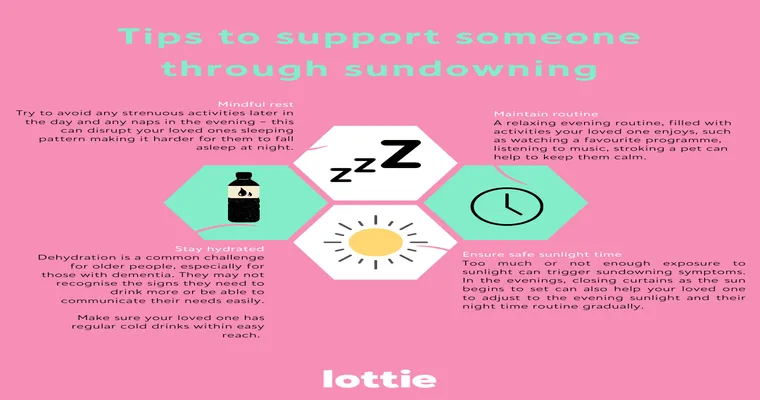Sundowning is a phenomenon that affects individuals with "dementia", particularly in the late afternoon and evening hours. During this time, they may exhibit increased "confusion", "agitation", and "restlessness". Many caregivers and families wonder, "Is there any way to prevent sundowning?" Understanding the condition is crucial in managing its symptoms and improving the quality of life for both the individual and their caregivers.
While there may not be a definitive cure for sundowning, several strategies can help "reduce its occurrence" and "mitigate its effects". Here are some practical tips that can be implemented:
1. "Establish a Routine": Maintaining a consistent daily schedule can help create a sense of security for the individual. Regular meal times, activities, and bedtime can reduce anxiety and confusion, making sundowning less likely to occur.
2. "Limit Stimulants": Reducing caffeine and sugar intake, especially in the afternoon and evening, can help prevent increased agitation. Instead, consider offering calming herbal teas or snacks that promote relaxation.
3. "Create a Calm Environment": Dimming lights and minimizing noise during the evening can help create a serene atmosphere. Consider using soft lighting and playing soothing music to help ease the transition from day to night.
4. "Encourage Physical Activity": Engaging in regular physical exercise during the day can help improve sleep quality and reduce restlessness in the evening. Simple activities like walking or light stretching can be beneficial.
5. "Monitor Medication": Consult with a healthcare professional to review the individual’s medications. Some medications can exacerbate symptoms of sundowning, so adjustments may be necessary.
6. "Provide Comfort Items": Familiar objects, such as photographs or favorite blankets, can provide comfort and reassurance, helping to alleviate feelings of anxiety during the evening hours.
7. "Stay Engaged": Engaging the individual in calming activities, such as puzzles or gentle conversation, can help distract them from feelings of confusion and restlessness.
8. "Seek Professional Help": If sundowning persists or worsens, it may be helpful to consult a healthcare provider or a specialist in dementia care. They can offer personalized strategies and interventions tailored to the individual’s needs.
In conclusion, while sundowning can be challenging for both individuals with dementia and their caregivers, implementing these strategies may help "prevent sundowning episodes" or lessen their severity. By establishing a consistent routine, creating a calm environment, and engaging in meaningful activities, caregivers can significantly improve the evening experience for their loved ones. Understanding and addressing the factors that contribute to sundowning can lead to a more peaceful and enjoyable evening for everyone involved.





